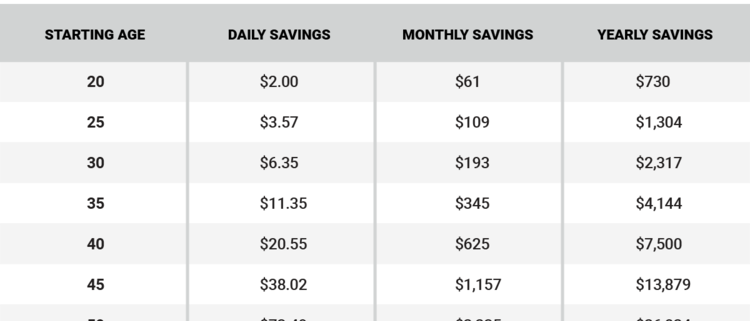If you inherit a 401(k) from a spouse, parent, or loved one, itis essential to be prepared. Inheriting this type of account may be less straightforward than other types of inheritances, and comes with many considerations depending on your relationship to the account holder.
The IRS has specific rules for spousal and non-spousal beneficiaries, all of which can affect your financial outcomes. Depending on the 401(k) type, you may owe taxes on the distributions from the inherited account. If you’re the beneficiary of a 401(k) or will be in the future, here’s what you need to know.
Key Takeaways
- Inherited 401(k) rules have key differences between spousal and non-spousal beneficiaries.
- You will owe standard income taxes if you inherit a traditional 401(k).
- You will not owe income tax if you inherit a Roth 401(k).
What is a 401(K)
A 401(k) is an employer-sponsored retirement savings plan. There are two types of 401(k) plans, traditional and Roth. With a traditional 401(k), employee contributions are pre-tax, reducing your taxable income, and taxes are paid when withdrawals are made during retirement. For Roth plans, contributions are made with after-tax dollars, but withdrawals in retirement are tax-free.
401(k) plans can be a great asset in retirement savings and should be taken advantage of if offered by an employer.
What are the rules when you inherit a 401(k)?
The rules for inheriting a 401(k) depend on several factors, including your relationship to the account holder, the age of the owner at their time of death, and whether or not they began taking required minimum distributions (RMDs), which start at 73. Detailed below are considerations for the most common situations.
How inheriting a 401(k) from your spouse works
If you inherit a 401(k) from a spouse, there are four options to consider:
- Take a lump-sum distribution. This means you can receive your portion of the 401(k) as a lump sum, without penalty. The IRS considers these distributions as regular income, which can create a significant tax bill. This is generally only a good option if the account balance is relatively small or you need immediate access to the full amount.
- Roll the assets into your own 401(k) or IRA. This option allows you to treat the funds as if they were originally your own, consolidating your savings into one account. It also provides the opportunity for the funds to continue growing. Rollovers are subject to standard 401(k) or IRA rules, but do not incur any unique penalties. If pre-tax funds are rolled over into a Roth account, you will most likely be subject to tax penalties. It is best to consult a financial or tax advisor if you are considering a Roth rollover. This benefit is only available to spousal beneficiaries.
- Transfer the 401(k) funds into an inherited IRA. An inherited IRA is an individual retirement account made specifically for inherited funds. This type of account allows the beneficiary to take withdrawals without facing early withdrawal penalties. It requires that you take minimum distributions, but these are based on your life expectancy, not your spouse’s. This option is helpful for spouses under 59½ who would like to make immediate withdrawals.
- Leave the 401(k) as is. If you leave the 401(k) in its original plan, you may withdraw without triggering the 10% early withdrawal penalty. You will still pay income tax on any tax-deferred funds. If you are over 59½ and your spouse was over 73 and taking RMDs before they passed away, you may choose to continue the withdrawals or wait until you reach 73 to begin RMDs. If you are 73 or over, you must take RMDs. If you are between 59½ and 73 with a spouse who was not yet 73, you can begin taking RMDs when your spouse would have reached 73.
Options for an Inherited 401(K) if you’re a non-spouse beneficiary
Options for an inherited 401(k) vary if you are a non-spouse beneficiary. In this situation, your options are:
- Take a lump-sum distribution. This option is the same as if you were a spouse. If you choose to take a lump sum, knowing if this distribution would push you into a higher tax bracket and being prepared is important. If the inherited 401(k) is traditional, you will owe taxes at standard income rates; if it is a Roth, you won’t owe any additional taxes on the withdrawal.
- Transfer the 401(k) funds into an inherited IRA. Money from an inherited IRA must be fully withdrawn within 10 years, unless the beneficiary is qualified as an eligible designated beneficiary, such as a minor child or someone with a disability. If the money in the 401(k) was pre-tax, you will owe taxes on withdrawals from a traditional inherited IRA. If it is withdrawn from a Roth 401(k) or converted to a Roth IRA, taxes will not be owed, as the money was contributed post-tax. If you convert a traditional 401(k) into an inherited Roth IRA you will most likely incur taxes on the conversion.
- Leave the 401(k) as is. You can leave the funds in the original 401(k), but as a non-spousal beneficiary, they are also typically subject to the 10-year rule.
What if the inherited 401(K) is a Roth?
If you inherit a Roth 401(k), you will not owe taxes on withdrawals, as the money was originally contributed post-tax. However, you may still be subject to the 10-year rule.
401(K) 10 Year Rule
With the passage of the SECURE Act in 2019, most non-spousal beneficiaries are required to fully distribute the inherited account within 10 years, a provision known as the 10-year rule.
- If the account holder died in 2020 or later, non-spousal beneficiaries must withdraw all funds by the end of the 10th year of the account holder’s passing or be subject to a 50% penalty on all remaining funds.
- There are some exceptions for non-spousal beneficiaries inheriting accounts in or after 2020. If the beneficiary is a minor, disabled or chronically ill, or is not more than 10 years younger than the original account owner, they may take RMDs based on their life expectancy. For minor beneficiaries, the 10-year rule applies when they reach the age of maturity, as determined by their state, typically 18 (or 19 or 21 in some states). For the other categories, the 10-year rule never applies.
Bottom Line
If you inherit a 401(k), you have several choices on handling the funds within the account. These options vary in terms of rules and regulations for spousal beneficiaries versus non-spousal beneficiaries. Since these inheritances can come with significant tax liabilities, it may be helpful to consult a professional. Horizons Wealth Management financial services can assist in understanding and managing an inherited 401(k).
401(K) Beneficiary FAQ
Do beneficiaries pay taxes on 401k (k) inheritances?
It depends on the type of 401(k) inherited. If it is a traditional 401(k), yes, as the contributions were made initially on a pre-tax basis. If it is a Roth 401(k), no, as the contributions were made with post-tax income.
How to avoid beneficiary taxes on inherited money?
There is no way to entirely avoid taxes on an inherited traditional 401(k) besides disclaiming the inheritance. You can minimize taxes paid at once by taking distributions from the original 401(k) or transferring the funds to an inherited IRA and taking distributions over 10 years.
Can I convert an inherited 401(k) to a Roth IRA?
Yes, you can convert an inherited 401(K) but you will have to pay taxes on the conversion.













